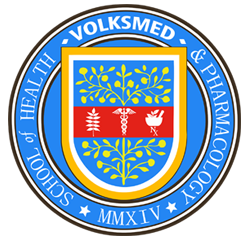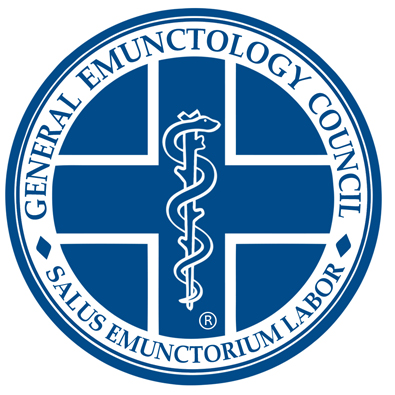1º. Ética:
Todo el Professional de Salud tiene la responsabilidad de saber distinguir
entre aquello que es correcto y lo que no lo es, así como analizar las
consecuencias morales de los actos del ser humano. Son ejemplos de aspectos
éticos en la práctica y la investigación médicas el consentimiento
informado, la confidencialidad, el respeto de los derechos humanos y la
integridad científica.
1º. Ethics: Every Health Professional has the responsibility to know
how to distinguish between what is right and what is not, as well as to
analyze the moral consequences of the acts of the human being. Examples of
ethical aspects in medical practice and research include informed consent,
confidentiality, respect for human rights and scientific integrity.
2º. Juramento Hipocrático:
Es el código ético de todo Professional de Salud con respecto a sus actitudes,
comportamiento y obligaciones hacia sus pacientes, compañeros y sociedad.
2º. Hippocratic Oath: It is the ethical code of all Health
Professional with respect to their attitudes, behaviour and obligations
towards their patients, partners and society.
3º. Profesionalismo:
Es el código de comportamiento que debe tener todo el Professional de Salud
de su relación con pacientes, compañeros y sociedad. Velar por el
mantenimiento de estándares altos de excelencia en la práctica profesional y
en la producción y transmisión de los conocimientos en competencia médica.
El profesional de salud debe poseer
cualidades psicosociales y humanitarias como: solicitud, empatía, humildad,
compasión,
responsabilidad social y de sensibilidad frente a la cultura y las creencias
de las personas.
3º. Professionalism: It is the code of behavior that all the Health
Professional must have of their relationship with patients, partners and
society. Ensure the maintenance of high standards of excellence in
professional practice and in the production and transmission of knowledge in
medical competence. The health professional must have psychosocial and
humanitarian qualities such as: solicitude, empathy, humility, compassion,
social responsibility and sensitivity to the culture and beliefs of people.
4º. Valores éticos: Los valores constituyen un determinante
importante de la salud del individuo y de la comunidad.
4th Ethical values: Values are an important determinant of the health
of the individual and the community.
5º. Equidad: La equidad en el ámbito
sanitario implica el ideal de que todas las personas deben tener la
oportunidad de alcanzar su nivel máximo de salud. Nadie debe tener obstáculos para conseguir este
objetivo.
5th Equity:
Equity in the health field implies the ideal that all people should have
the opportunity to reach their maximum level of health. No one should have
obstacles to achieve this goal.
6º. Calidad de vida:
El Professional de Salud debe velar por la capacidad de sus
pacientes recibir la mejor ayuda y atención medica que les permita volver a
gozar de buena salud física y mental sin enfermedad, Incapacidad o impedimento.
6th.
Quality of life: The Health Professional must ensure the ability of
their patients to receive the best help and medical attention that allows
them to enjoy good physical and mental health without illness, disability or
disability.
7º. Estilo de vida:
Una modificación del estilo de vida puede incluir actividades como el cambio en
el tipo de nutrición y participación en programas regulares de ejercicio y
actividades
físicas y al aire libre.
7th
Lifestyle: A lifestyle modification may include activities such as
changing the type of nutrition and participation in regular exercise
programs and physical and outdoor activities.
8º. Comunicación:
En el contexto de la educación de salud, su función principal es el
establecimiento de una relación entre el paciente y el practicante de salud. La buena comunicación efectiva
haz con que pacientes mejoren más
rápidamente, superan mejor el dolor, requieren menos medicación y
experimentan otros numerosos efectos beneficiosos en su salud.
8th
Communication: In the context of health education, its main function is
the establishment of a relationship between the patient and the health
practitioner. Good effective communication helps patients improve more
quickly, outgrow pain, require less medication and experience numerous other
beneficial effects on their health.
“To find health should be the
object of the doctor. Anyone can find disease.” - Dr Andrew Taylor Still, DO
in "Philosophy of Osteopathy", 1899.
“The aim of medicine is to
prevent disease and prolong life, the ideal of medicine is to eliminate the
need of a physician.” - Dr William J. Mayo, MD in "National Education
Association: Proceedings and Addresses", 1928.
"The cause of most disease is in the poisonous
drugs physicians superstitiously give in order to effect a cure." - Charles E.
Page, M.D.
"Medicines are of subordinate importance because
of their very nature they can only work symptomatically." - Hans Kusche, M.D.
"If all the medicine in the world were thrown
into the sea, it would be bad for the fish and good for humanity" - O.W.
Holmes, (Prof. of Med. Harvard University)
"Drug medications consists in employing, as
remedies for disease, those things which produce disease in well persons.
Its materia medica is simply a lot of drugs or chemicals or dye-stuffs in a
word poisons. All are incompatible with vital matter; all produce disease
when brought in contact in any manner with the living; all are poisons."
- R.T. Trail, M.D., in a two and one half hour lecture to members of congress and
the medical profession, delivered at the Smithsonian Institute in Washington
D.C.
"Every drug increases and complicates the
patients condition." - Robert Henderson, M.D.
"Drugs never cure disease. They merely hush the
voice of nature's protest, and pull down the danger signals she erects along
the pathway of transgression. Any poison taken into the system has to be
reckoned with later on even though it palliates present symptoms. Pain may
disappear, but the patient is left in a worse condition, though unconscious
of it at the time." - Daniel. H. Kress, M.D.
"The greatest part of all chronic disease is
created by the suppression of acute disease by drug poisoning." - Henry Lindlahr, M.D.
"Every educated physician knows that most
diseases are not appreciably helped by medicine." - Richard C. Cabot, M.D.
(Mass. Gen. Hospital)
"Medicine is only palliative, for back of disease
lies the cause, and this cause no drug can reach." - Wier Mitchel, M.D.
"The person who takes medicine must recover
twice, once from the disease and once from the medicine." - William Osler, M.D.
"Medical practice has neither philosophy nor
common sense to recommend it. In sickness the body is already loaded with
impurities. By taking drug - medicines more impurities are added, thereby
the case is further embarrassed and harder to cure." - Elmer Lee, M.D., Past
Vice President, Academy of Medicine.
"Our figures show approximately four and one
half million hospital admissions annually due to the adverse reactions to
drugs. Further, the average hospital patient has as much as thirty percent
chance, depending how long he is in, of doubling his stay due to adverse
drug reactions." - Milton Silverman, M.D. (Professor of Pharmacology,
University of California)
"Why would a patient swallow a poison because he
is ill, or take that which would make a well man sick." - L.F. Kebler, M.D.
"What hope is there for medical science to ever
become a true science when the entire structure of medical knowledge is
built around the idea that there is an entity called disease which can be
expelled when the right drug is found?" - Dr John H. Tilden, M.D.
"The necessity of teaching mankind not to take
drugs and medicines, is a duty incumbent upon all who know their uncertainty
and injurious effects; and the time is not far distant when the drug system
will be abandoned." - Charles Armbruster, M. D.
"We are prone to thinking of drug abuse in terms
of the male population and illicit drugs such as heroin, cocaine, and
marijuana. It may surprise you to learn that a greater problem exists with
millions of women dependent on legal prescription drugs." - Robert Mendelsohn,
M.D
"The commonly prescribed drug therapies do not treat an underlying cause
of disease. If you don’t know what the underlying cause of an illness is,
then how can you implement a treatment regimen? " - Dr. David Brownstein, M.D.
To know more about Medicine
-
Allopathic Medicine
Dark Ages
- Death by
Medicine
- The
documentary Medical Inc. “Doctored” 2012
Concerning the title of Doctor
Doctor is an academic title that originates from the Latin word of the same
spelling and meaning. The word is originally an agentive noun of the Latin
verb docēre 'to teach'. It has been used as an academic title in Europe
since the 13th century, when the first doctorates were awarded at the
University of Bologna and the University of Paris. Having become established
in European universities, this usage spread around the world.
The doctorate (Latin: doceō, lit. 'I
teach') appeared in medieval Europe as a license to teach (Latin: licentia
docendi) at a medieval university. Its roots can be traced to the early
church when the term "doctor" referred to the Apostles, church fathers and
other Christian authorities who taught and interpreted the Bible. The right
to grant a licentia docendi was originally reserved to the church which
required the applicant to pass a test, take an Oath of allegiance and pay a
fee. The Third Council of the Lateran of 1179 guaranteed the access – now
largely free of charge – of all able applicants, who were, however, still
tested for aptitude by the ecclesiastic scholastic.
This right remained a bone of contention between the church authorities and
the slowly emancipating universities, but was granted by the pope to the
University of Paris in 1213 where it became a universal license to teach (licentia
ubiquie docendi). However, while the licentia continued to hold a higher
prestige than the bachelor's degree (Baccalaureus), it was ultimately
reduced to an intermediate step to the Magister and doctorate, both of which
now became the exclusive qualification for teaching.
The earliest doctoral degrees (theology and law) reflected the historical
separation of all university study into these three fields. Over time the
D.D. has gradually become less common and studies outside theology and law.
The Medical Trade wishes to
usurp the distinction or title of "Doctor" to be in its exclusivity
to its own.
Adolphe Comb, MD (1859-1916)
Dr. Adolphe Combe, MD was a German/Swiss
professor who invented the first return flow colon hydrotherapy instruments.
A professor of Clinical Pediatry at the University of Lausanne
(Switzerland), he was also Chief of Clinic for Children’s Diseases and
President of the Swiss Pediatric Society.
Combe writes that he saw not only adults but many children “…suffering from
intestinal affections…” (Intestinal Auto-Intoxication by A. Combe, 1908)
Which led him to create for himself special methods and procedures to deal
with the “affections of the digestive tract.” To counter these “affections”
he would prescribe specific diet regimens, return flow colonic hydrotherapy,
certain medicines and other therapeutic means.
Professor Combe approach to the problem of intestinal disorders was so
widely embraced at the time that his work was translated from the German to
English for immediate publication.
At that time it was believed that the greatest advances made in
physiological chemistry and experimental research had brought to light many
indisputable facts pertaining to metabolism and the origin and action of
toxins, as well as showing the relationship and interdependence of various
glandular organs concerned with nutrition, their supplemental and
complementary action and the effects upon the organism of their
insufficiencies.
In his translation, Professor Combe details the methods he adopted after
many years of experimentation, including a discussion of the relative merits
of the various soured milks and lactic acid ferments, and his basic theory
of autointoxication.
Dr. Combe refers to a triple line of defence surrounding the intestines.
1. The first line of defence is Intestinal Mucosa.
2. If it were to be circumvented, the second line of defence, the Liver,
would come into action.
3. The third line of defence, is the “anti-toxic glands” or the endocrine
system and its related glands – the thyroid, pituitary, adrenals, etc. – and
how these three worked with the body’s autoimmune response to toxins.
Intestinal toxemia, has shown by Dr Adolphe Combe, can be the root cause of
many conditions.
Byron Robinson, BS, MD (1854-1910)
Byron Robinson, BS, MD Rush Medical College, Chicago, 1882; a noted
scientific investigator in anatomy and pathology; former professor of
anatomy and clinical surgery in Toledo Medical College; professor of anatomy
in the Post-Graduate Medical School and Hospital, Chicago; professor of
surgery in the College of Physicians and Surgeons, Chicago; former professor
of gynecology and abdominal surgery in Illinois Medical College; professor
of gynecology and diseases of the abdominal viscera in the Chicago College
of Medicine and Surgery; member of the Illinois State Medical Society;
author of two volumes on intestinal surgery, four volumes on gynecologic
subjects, an encyclopedic treatise on the peritoneum, and an extensive 'work
on "The Abdominal and Pelvic Brain".
Dr. Robinson was a member of the staff of the Indianapolis Medical Journal
for a number of years and was one of its most earnest and faithful
collaborators.
Many of the articles which were profusely illustrated, representing the
results of his original research, were published for the first time in this
Journal.
Dr. Robinson removes was great enough to be misunderstood.
Recognition came slowly and as Dr. Atkinson once said: "He was a scientist
and philosopher who beat the facts on the anvil of philosophy and forged
them Into living principles."
In many of his scientific investigations means were provided by which
established errors in medicine and surgery were corrected, and yet the
members of the medical profession did not grasp them with the enthusiasm as
has been the case with some others. Perhaps the man did not herald his
scientific facts with sufficient bombastic flourish.
At a meeting last year held at Valparaiso University the degree of M.D. was
conferred upon Dr. Robinson; and at the same time a bust of him was unveiled
which was the gift of his students from various sections of the country.
In an address at this time, by the author heretofore quoted, we find an
expression which indicates how gingerly philosophical truths are sometimes
accepted. Medical science in common with the rest of the World does not take
kindly to its philosophers until their philosophy has become a concrete part
of the rest of its knowledge.
The views of Dr. T. J. Atkinson which we used a year ago will bear
repetition. "But among right-thinking men this man, who has fought so long,
single handed, a battle against irrational surgery, backing up every inch of
his way with the unanswerable logic of his scalpel and his pen, is at last
coming into his own, and the principles for which he has stood are surely
and triumphantly winning out.
"His contributions to anatomy are many and important, and have become an
integral part of medical science.
His teachings and work in abdominal surgery have changed the entire face of
that subject.
His influence has not yet reached its fullness — it has only just begun. He
is essentially a man of the future — a prophetic spirit ahead of his time.
As Nicholas Senn well said of him, “The impression conveyed by Byron
Robinson's works it that they will yield more and more material the more
carefully they are studied in succeeding decades."


